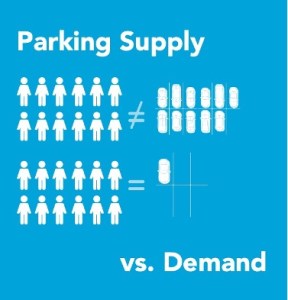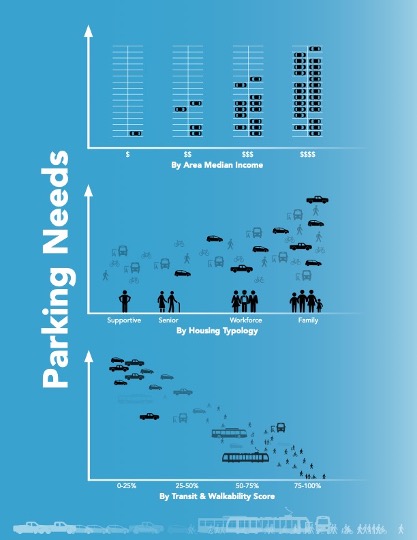Commentary: What do parking requirements have to do with affordable housing?

This guest commentary is by Rev. Laura Rossbert, a local affordable housing advocate and the COO/Supportive Housing Specialist at Shopworks Architecture. Laura is dedicated to ensuring housing meets the needs of those who will live within it and is passionate about helping non-profits build dignified, joyful, and equitable housing and organizations! She’s also the mom of two awesome girls who keep her on her toes daily, and remind her to laugh amidst the chaos. She is on Twitter @lrossbert and on LinkedIn.
When I entered the affordable housing world, one thing I didn’t count on was how many projects across Denver don’t even pass the visioning stage. There are a variety of reasons for this, mainly revolving around finances, but the one I was not counting on was…parking. Yes, you read that right. I had no idea how many projects never come to be because our current zoning code has unreasonably high parking requirements that add so much cost to a project. Whether it be the cost to build it or the land required to create space for those cars, many projects die before they ever had a chance to live. So, now I’ve somehow become a parking activist. Who knew that was a thing?

As a firm that focuses on designing affordable housing, Shopworks Architecture consistently experiences the parking required by code exceeding the demand of these buildings. We have visited our buildings after they were built, and we often find ourselves walking through mainly empty parking lots. In order to understand the parking needs of affordable housing projects across Denver, our firm partnered with Fox Tuttle Transportation to explore parking demands on a variety of affordable housing types to determine whether the current code requirements are warranted or if our anecdotal evidence was correct and these parking requirements are too high. Within Denver zoning code, required parking ratios in affordable housing vary greatly. For example, developments along the Colfax corridor require 0.25 parking spots per unit, some zone districts within the Downtown Core require 0 parking spots per unit, and elsewhere in Denver the requirements can be up to 1.25 parking spots per unit.

To explore parking demand, we surveyed 19 properties with an average area median income (AMI) of 30-50%. Our findings surprised even the members of our team. Some of our key takeaways:
- Current parking requirements for affordable housing exceed the demand for that parking – We found that average vehicle ownership was 8.8% which equates to 1 vehicle per 12 units.
- Across one-bedroom supportive housing units in Denver (0-30% AMI), 5.3% of residents have a car, equating to less than 1 vehicle per 18 units.
- These parking requirements place an undue burden on affordable housing and limit its creation in Denver due to the land required to park those cars and the cost to build parking.
We also found that a property’s proximity to quality walking and biking opportunities and transit services deeply impacts vehicle ownership. This is especially important because affordable housing is often purposefully situated within communities and neighborhoods that are walkable, bikable, and near transit. In addition, the non-profits that generally operate these properties often provide their residents with transit passes or drive them to appointments if necessary.
Across the 19 properties we surveyed that were built during the last six years, we found that 883 parking spaces were built, but only 461 were used; in other words, 422 unnecessary parking spaces were built. With an estimated cost of $22,000 per space, $9.28 million dollars was spent on unnecessary parking. Instead of building these parking spaces, an entire separate 40-unit supportive housing apartment building could have been built!
We are building parking when we could be building more housing. Affordable housing is paid for with federal, state, and city funds. We are using taxpayer dollars to build parking when we could be creating housing that our fellow Denverites desperately need. Let’s do something about that!
We welcome conversation about what this means for our city. To see our full report, including the data we used in our study, please visit www.shopworksarc.com/parking/.
Do you have an idea for a guest commentary? Please fill out this form.
Support the nonprofit mission of Streetsblog Denver. Give $5 per month.



